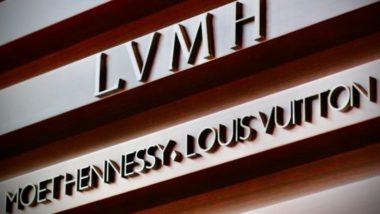Moët Hennessy Louis Vuitton (LVMH), a family-run group, is dedicated to nurturing the long-term development of each of its Maisons, honouring their unique identity, rich heritage, and exceptional expertise. Bernard Arnault, the visionary CEO and Chairman of Louis Vuitton, known as the world's richest man, shares inspiring monthly lunches with his five children, assessing their readiness to lead his magnificent luxury empire. The company has remarkably triumphed in the luxury industry, displaying an unwavering momentum for the future. This inspiring journey is evident in the soaring stock prices of its associated companies, a testament to the successful transformation of each brand LVMH has acquired. With its substantial financial resources, LVMH has brilliantly revitalized these brands, paving the way for solid and steady growth. Let’s delve deeper into this impressive journey. Gently Used Luxury Bags To Rule 2025, a Sustainable Fashion Choice.
LVMH Journey Onboarding More Brands
Moët Hennessy Louis Vuitton (LVMH) is a French multinational corporation that specializes in luxury brands. Founded in 1987, LVMH was a merger of two major entities, Louis Vuitton and Moët Hennessy. From its inception, the company quickly became a powerhouse in the luxury sector. Just two years later, in 1989, LVMH expanded its portfolio by acquiring iconic brands such as Givenchy, Dior, Dom Pérignon, and Veuve Clicquot.
The 1990s marked a period of aggressive growth for LVMH. In 1993, the company took ownership of Kenzo, Berluti, and an investor in the luxury goods sector. The following year, they added the prestigious perfume house Guerlain to their mix. LVMH continued this trend in 1995 with the acquisition of Fred, a renowned jeweller, and in 1996, they brought Celine and Loewe into their fold. The highlight of 1998 was the addition of several key brands, including Marc Jacobs, Sephora, and DFS, significantly enhancing their portfolio. Sneaker Trends You Can Expect To See Everywhere in 2025.
1999 proved to be a particularly busy year for LVMH as they strengthened their standing in the luxury market by acquiring a variety of brands. This included high-end labels such as TAG Heuer, Krug, and Chaumet (a luxury jeweller), as well as cosmetic brands like Benefit and Make Up For Ever. The company also added Zenith, a historic watchmaker, to their expansive roster.
As the new millennium approached, LVMH continued its buying spree. In 2000, they acquired Rossimoda, renowned for its luxury footwear, along with Pucci, known for its vibrant prints. The following year brought Fendi, an iconic Italian fashion house, and Aqua di Parma, a classic Italian fragrance brand, into the LVMH brand family.
In 2002, the company diversified further with the acquisition of Belvedere, a high-end vodka brand. This momentum continued in 2004 when LVMH purchased Glenmorangie and Ardbeg, two prestigious whiskey brands, signalling a strategic expansion into the beverages sector.
The acquisition drive persisted in 2007 when LVMH bought Les Echos, a leading French business newspaper, showcasing its interest in diverse sectors. The luxury expansion didn’t stop there; in 2008, the company acquired Hublot, a leading luxury watchmaker, as well as the esteemed brand Van Cleef & Arpels. In 2009, their investment in Moynat, a heritage bag brand, marked yet another strategic enhancement to their portfolio.
The subsequent years saw continued acquisitions, with Bvlgari, the iconic Italian jeweller, joining the group in 2011. LVMH’s expansion intensified in 2013 with strategic acquisitions including Loro Piana, known for cashmere, Coya, and designer Nicholas Kirkwood.
In 2015, they purchased Repossi, further reinforcing their position in the luxury jewellery arena, and also acquired Le Parisien, a notable French newspaper. The company’s ambitious trajectory continued into 2016 with the acquisition of Rimowa, known for its high-quality luggage.
In the years that followed, LVMH expanded into the beauty and fashion industries by acquiring brands such as Patou in 2018 and launching Fenty Beauty, a groundbreaking line co-created by Rihanna, in 2019. The luxury conglomerate truly reached a new milestone in 2020 with the acquisition of Tiffany & Co., a storied name in the jewellery sector.
In 2021, LVMH added Off-White, a contemporary streetwear brand founded by designer Virgil Abloh, to its impressive collection, along with Efficine Universelle Bully, which specializes in artisanal beauty products. The company's latest move in 2022 was the acquisition of the Pedemont Group, further solidifying its diverse portfolio.
LVMH's remarkable journey from a modest 3 billion euros in revenue to an astounding 79 billion euros speaks volumes about its strategic foresight and relentless pursuit of excellence in the luxury industry. The company continues to redefine luxury with each acquisition and innovative makeover, solidifying its position as a leader in the market.
(The above story first appeared on LatestLY on Jan 06, 2025 09:31 AM IST. For more news and updates on politics, world, sports, entertainment and lifestyle, log on to our website latestly.com).













 Quickly
Quickly


